




 |
   |
 |
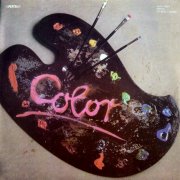 |
Color (1978, 42.08) ****/T |
|
| Álmatlanul Hárommilliárd Év A Nap Siet Kölcsön Ikaruszi Zuhanás Elképzelt Világ Jó Lenne Tudni |
Panoptikum a) Belépés b) Előtér c) Barlang d) Gyilkosok e) Férj, Feleség f) Császár g) Udvaron |
|
Current availability:
Mellotron used:
Color were a hitherto-obscure progressive outfit from Hungary, whose eponymous 1978 debut is, in places, a startling good piece of work, top tracks including Hárommilliárd Év, with its inventive synth arrangements, the slightly fusion-esque Ikaruszi Zuhanás and excellent fourteen-minute closer Panoptikum. The musicianship's top-notch throughout, while much of the material sounds like Color and Color only, although there's a terrible cop from Genesis' Robbery, Assault & Battery on bonus track no. 2, Fényes Kövek, while no. 3, A Bohóc, leans towards their second album, 1982's far more commercial Új Színek.
Bassist Bokor Tibor plays Mellotron alongside brother Gyula's ubiquitous string synth, with strings on opener Álmatlanul and Elképzelt Világ, although, for some strange reason, it's always kept in the background. As you can see, this is on CD, two of the three bonus tracks being well worth hearing, as is the album as a whole. Not much Mellotron, but recommended anyway.
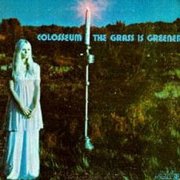 |
The Grass is Greener (1970, 38.59) ***½/TJumping Off the SunLost Angeles Elegy Butty's Blues Rope Ladder to the Moon Bolero The Machine Demands a Sacrifice The Grass is Greener |
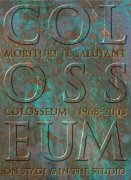 |
Morituri Te Salutant [Disc 2] (2009, recorded 1968-2003, 70.54) ****/T |
|
| Jumping Off the Sun Rope Ladder to the Moon Bolero The Grass is Always Greener Three Score and Ten, Amen Time Lament Take Me Back to Doomsday The Daughter of Time |
Theme for an Imaginary Western Bring Out Your Dead (demo) Downhill and Shadows Jumping Off the Sun The Pirate's Dream |
|
Current availability:
Mellotrons used:
Colosseum's The Grass is Greener is an odd, US-only compilation of odds'n'sods, replicating their best-known work, The Valentyne Suite's sleeve design, for no apparently good reason. Record company laziness, I expect. And cost. It actually works quite nicely as a sort of overview of their style and, although the unavailable-elsewhere tracks are apparently now included on the band's official albums as bonuses, this is worth hearing in its own right. There isn't a bad track on the album, but highlights are probably opener Jumping Off The Sun, their version of Ravel's Bolero (probably the earliest rock adaptation) and, after a slow start, the cataclysmic closing title track, with some seriously ripping Hendrix/Blackmore-esque guitar work. Keys man Dave Greenslade, who tended to stick with organ and piano at this stage in his career, plays Mellotron on the band's version of Jack Bruce's Rope Ladder To The Moon, with some fairly ordinary string chords on a MkII, more audible towards the end of the song.
2009's four-disc Morituri Te Salutant (usually translated as 'those who are about to die salute you', the gladiators' supposed salutation) appears to cover most, but not all of the original band's output, along with the usual slew of demos, radio sessions and live tracks. Much of The Grass is Greener turns up on disc two, including its lone Mellotron track, along with a significant unreleased piece, the twelve-minute The Pirate's Dream, Greenslade adding a polyphonic Mellotron flute part and a couple of string swells at its conclusion.
See: Greenslade | Dave Greenslade
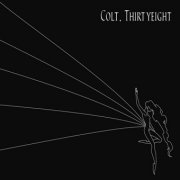 |
A Freak Experiment Through the 99th Dimension (2001, 39.20) ***½/TThe GamblingAdonai Hell & Spacecrafts Midnight Siren Blues Snakes, Snails & Puppy Dog Tails Dig From My Hands Carnauba Mindrocker |
Current availability:
Mellotron used:
Hard and fast information on Colt Thirtyeight (or Colt38, or several other variations) is hard-won, but it seems they're a kind of Italian space-rock supergroup led by vocalist/guitarist Claudio Colaianni, other members including Enrico Ruggeri and Michele Rossiello. They first came to the public's attention through an eight-track CD given away with Vincebus Eruptum mag, either self-titled or known as A Freak Experiment Through the 99th Dimension. The album veers between heavy stoner-psych (opener The Gambling, Hell & Spacecrafts, Dig From My Hands), drifting experimentalism (Snakes, Snails & Puppy Dog Tails, Carnauba) and other associated styles, possibly at its best on cool, eleven-minute mellow-yet-intense jamfest Midnight Siren Blues.
One Mellotron track, with skronky strings and cellos on opener The Gambling from one Alberto F., most likely Alberto Ferrari from Verdena, which would explain why it sounds real. Colt Thirtyeight subsequently fell off the map, reappearing some sixteen years later on one half of VE Records' Psychedelic Battles - Volume Three; such is the lot of part-time bands, I suppose. At least this relative obscurity's now up on YouTube, for those of you who just can't get enough stoned-out space rock.
See: Verdena
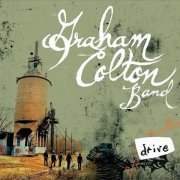 |
Drive (2004, 43.20) **/½ |
|
| Don't Give Up on Me Since You Broke it First Week Morning Light Sending a Note Cigarette Killing Me How Low (Breakdown) |
Cut South All the World Tonight |
|
Current availability:
Mellotron used:
Graham Colton is a singer-songwriter from Oklahoma, who's had his songs featured on various popular US TV shows and has toured with the likes of John Mayer, Dave Matthews and, above all, Counting Crows, with whom Colton is reasonably comparable. 2004's Drive (his only album crediting his band) is his second release, a rather drippy, mainstream kind of pop/rock record, overlaid with Colton's bland, not especially tuneful voice, full of cheery, upbeat material like opener Don't Give Up On Me and Cigarette.
Producer Brendan O'Brien plays various instruments, including (his own?) Mellotron, with distant strings on Morning Light, although the strings on Killing Me are real. All in all, then, Tom Petty-lite for the modern age. Oh joy. No, this is not worth hearing for any reason.
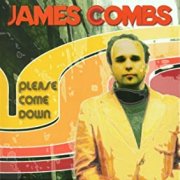 |
Please Come Down (2001, 43.30) **½/T |
|
| Soft Star Mode Close My Eyes and Go to Sleep You Just Bring the Drugs In the Oxygen 4 Star Alarm Something Resembling Sleep Strange Intervention One Hand Clapping |
Lie of the Adored Please Come Down Light the Optimist Innuendo and Spin In the Lab Go Tell Yer Ma |
|
Current availability:
Chamberlin used:
L.A. native James Combs (ex-Arson Garden, assuming you care) describes his 2001 debut, Please Come Down, as 'indie-rock' for a good reason. It's indie-rock. Specifically, that light-as-air variety of millennial Californian indie that irritates mildly, then passes, leaving no obvious impression. No, there are no notably better tracks, nor, indeed, any that I can remember moments after listening. This is clearly aimed at people with a lower taste threshold than myself. Ouch.
Producer Paul Scriver plays what sounds like genuine Chamberlin on a handful of tracks, with an unaccompanied string part on 4 Star Alarm, upfront flutes on Strange Intervention, distant ones on the title track and, briefly, upfront brass on closer Go Tell Yer Ma, though not enough, even in total, to garner the album more than a single T. OK, I've heard worse (I've ALWAYS heard worse), but I've also heard so much better. Don't bother.
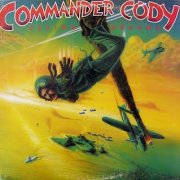 |
Flying Dreams (1978, 33.32) ***/T |
|
| Thank You, Lone Ranger Cry Baby Cry He's in Love (He's in Trouble) Life is a Carnival Talent Night at the Nashville Inn Flying Dreams Dreams of Barbarella Vampira |
Take the Fifth Amendment Stranger in a Strange Land My Day |
|
Current availability:
Mellotron used:
Pianist George "Commander Cody" Frayne (1944-2021, named in honour of '50s SF serial character Commando Cody) and his Lost Planet Airmen (another era reference) were a country-rock band who shunned the more obvious Nashville route, veering towards rockabilly and western swing as a welcome alternative. 1978's Flying Dreams (the sleeve continuing the 1950s science fiction theme) was Frayne's first solo album proper (although the previous year's Rock'n'Roll Again was sans his Airmen), a pleasant, if undemanding set of country, blues and boogie, sometimes all at once, top tracks including the Flying Dreams/Dreams Of Barbarella segue and the eerie Vampira.
Neil Larsen plays Mellotron, with a chordal flute part on Cry Baby Cry, although the string parts on a couple of tracks sound real. This has only recently been reissued, but at least it's available again. Frayne/Cody continued playing and recording for the rest of his life, releasing a live album two years before his death, although I rather doubt whether he ever supported artists of the stature of The Grateful Dead or Led Zeppelin again.
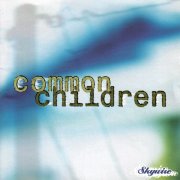 |
Skywire (1996, 49.50) **/T |
|
| Throw Me Over Wishing Well Drought Skywire Dual Lens Man Hate Treasure |
Domesticity Drown Broken Smile Last Time Out |
|
Current availability:
Mellotron used:
Common Children were a CCM trio operating at the 'alternative' end of the spectrum, i.e. rather outdated grunge crossed with syrupy pop with a Christian bent. Their debut album, 1996's Skywire, is a fairly tedious proposition, although it beats most CCM hands-down simply by not being appalling, treacly rubbish with vomit-inducing lyrics. I'd be lying if I said the album had any noticeable highpoints, but at least most of it's relatively inoffensive, in a loud-guitars kind of way.
Phil Madeira does his usual God-bothering Mellotron thing, although were he not credited, I would probably have chucked this into 'samples', or possibly straight into the bin, as the cello and string parts on Broken Smile really don't sound much like a Mellotron, although they clearly are. Although less atrocious than many, I really couldn't, in all conscience, recommend this.
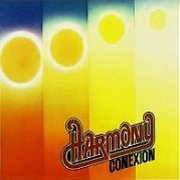 |
Harmony (1973, 35.19) ***/THarmonyDon't Cry Hello My Friend Our Music Summer Day Concierto Uno |
Current availability:
Mellotron used:
Harmony were Spain's entrant in the brass-rock stakes, their answer to Blood, Sweat & Tears, maybe, who released several singles and an album, 1973's Harmony. It's a decent enough effort of its type, although they were unlikely ever to worry Chicago overmuch. Aside from the rather cheesy title track/single, the rest of the material is in the jazz/rock vein, veering between the funky Hello My Friend, the doomy Don't Cry and Concierto Uno, a side-long fusion epic, no less.
Saxophonist Luis Cobos doubled on Mellotron, mostly on Don't Cry, which begins with a murky cello part, with chordal strings and a flute melody later in the decidedly Mellotron-heavy track, with the tiniest smattering of strings buried in the mix on Summer Day for good measure. The whole album, plus loads of singles and other stuff, is available on Reves' two-disc Todas Sus Grabaciones en Sonoplay y Movieplay (1969-1974), which is good news for brass fans, although I couldn't honestly recommend it for the Mellotron.
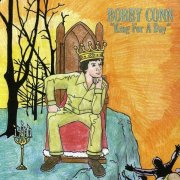 |
King for a Day (2007, 52.02) ***/½ |
|
| Vanitas When the Money's Gone King for a Day A Glimpse of Paradise Love Let Me Down Sinking Ship Twenty-One Punch the Sky! |
Anybody (I'm Through With) My Ego Mr. Lucky Things |
|
Current availability:
Chamberlin used:
Jeffrey "Bobby Conn" Stafford has had quite a career since the late '80s, shifting from hardcore through prog and 'alternative', all presumably used as vehicles for his songwriting. 2007's King for a Day fits loosely into the last-named genre, such as it is, although elements of his previous styles have clearly rubbed off, as Sinking Ship is a distinctly proggy effort (in a Crimson-esque vein), while several other tracks are more instrumentally complex than anything you'd care to name by most of Conn's contemporaries.
Conn plays Chamberlin on the title track, with what sounds like some variety of woodwind chords on the chorus, although you'd have little idea they were tape-replay-produced, were they not credited. Overall, then, far better than your average 'alt.' album, yet curiously unfulfilling at the same time. Conn's unusual combination of genres, while both brave and potentially interesting, rarely actually works in practice, Sinking Ship being the chief exception. Sort-of worthwhile, though not for the Chamberlin.
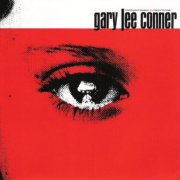 |
7" (1999) ***½/TTT Grasshopper's Daydream Behind the Smile |
Current availability:
Mellotron used:
Gary Lee Conner was guitarist with Screaming Trees, going solo after their split in 2000. After 1990's solo album The Purple Outside-Mystery Lane, his only other release during the life of the band was '99's Grasshopper's Daydream, on Sub Pop. This early Floyd-channelling effort sounds like what it is, a decent piece of reconstituted psych squished through grunge, which is actually rather better than it sounds.
The flip, Behind The Smile, a dark, acoustic number, is awash with clearly very real Mellotron strings, wobbling all over the place in fine style, making for a pretty decent twofer. Let's face it, reconstituted psych still beats most modern styles hands down... Worth hearing.
See: Screaming Trees | Microdot Gnome
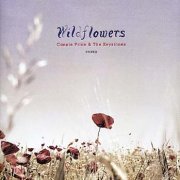 |
Wildflowers (2004, 46.25) ***/T |
|
| Sticks & Stones Sucker Punch Western Champion The Buzzard Tall Dry Grass The Shadows of Leaves Fuzz and Them Double Dutch |
Wildflowers Get Thy Bearings |
|
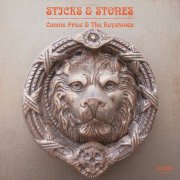 |
Sticks & Stones (2005, 16.19) ***/TSticks & StonesSticks Dub I'm Inside Out Raga Doll Afro Som |
Current availability:
Chamberlins used:
So why is Connie Price listed under 'C', then? Although a Connie Price is credited on their debut, 2004's Wildflowers (er, on drums), she is naught but a nom de plume for LA producer Dan Ubick, who seems to play most of the instruments on the band's infrequent, mostly instrumental releases. The term 'deep funk' (as in 'deep soul') has been coined to describe their particular brand of groove; as you might expect from a seasoned crew of studio hacks, every track illustrates a different facet of the style, from brass-driven vibes-fest opener Sticks & Stones through the country/funk (I kid you not) of Tall Dry Grass to the carnivalesque title track. Jeremy Ruzumna (of 'whatever happened to' Macy Gray fame) plays uncredited Chamberlin, with strings on Sticks & Stones, although all other string parts emanate from a Solina string synth.
The following year's Sticks & Stones EP builds on their album, repeating the title track, adding a dub version and some live material to tempt waverers. Ruzumna's actually credited on Chamby this time round, with a reiteration of his part on Sticks & Stones and more of the same (as in, the same recording) on Sticks Dub. So; are these any good? At what they do (funk/soul/dub), yes. Will you like them? Depends on you, really.
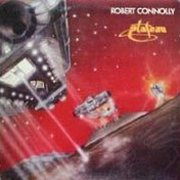 |
Plateau (1977, 35.21) ***½/TTPlateau of NaskaA Close Encounter Power of Giza The Battle of Gomorrah Journey The Oracle |
Current availability:
Mellotron used:
I don't know an awful lot about Robert Connolly, but, assuming he's the same guy mentioned on a site dedicated to strange human remains in Peru, he's a bit of an expert in the prehistory of the area. Plateau opens with a rather cheesy spoken-word part explaining something about the Plains of Nazca and aliens, but I'm afraid my attention had already wandered by then. Connolly gets in a female vocalist for A Close Encounter, before more intoned nonsense on Power Of Giza and Journey, although he sings on the latter, too. The music is reasonable late-'70s progressive, with a noticeably American sound, despite his actually being Canadian. Plenty of good Hammond and synth work, although many of the melodies are rather lightweight, making it a bit of a non-essential purchase, especially considering its rarity.
As far as the Mellotron's concerned (played by Connolly), there are a few string chords on Plateau Of Naska and the lengthy Journey has a more overt strings part plus largish helpings of choir, but that appears to be it, though as I'm reviewing this from a tape copy, I may be wrong. So; an OK album, a bit of Mellotron, but nothing outstanding in either department, to be honest.
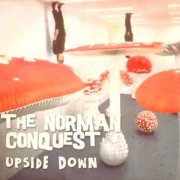 |
7" (1968) ***/T Upside Down Two People |
Current availability:
Mellotron used:
John Pantry was one of many talented London-based engineers/session men during the late '60s psych boom, although much of his own work is apparently either blue-eyed soul (pre-psych) or Christian music (post-). 1968's Upside Down was a one-off 7" released under the nom de plume Norman Conquest (ho and ho again), a pretty typical effort from the lighter end of the psych spectrum, which reminds me of something I can't quite put my finger on; suffice to say, both sides of the single are decent enough without being in any way startling.
The 'Mellotron' (most likely from Pantry himself) on the 'A' actually sounds more like high-end fast-Leslied Hammond to my ears, although the 'bottom of a well' brass on the flip has to be a mic'd up MkII. Not all that much Mellotron, then, but one which era completists will need to flesh out their collections. Luckily, both sides are available, not only on several era compilations, but on a collection of Pantry's work from the time, Tenth Planet's The Upside Down World of John Pantry.
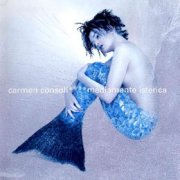 |
Mediamente Isterica (1998, 46.11/118.53) **½/0 (½) |
|||
| Bésame Giuda Bésame Mucho Puramente Casuale Sentivo l'Odore Autunno Dolciastro Ennesima Eclisse In Funzione di Nessuna Logica Geisha Eco di Sirene |
Quattordici Luglio Anello Mancante Contessa Miseria L'Ultima Preghiera [Expanded ed. adds: L'Uomo Meschino Besame Giuda Besame Mucho Puramente Casuale |
Sentivo l'Odore Autunno Dolciastro Ennesima Eclisse In Funzione di Nessuna Logica Geisha Eco di Sirene Quatordici Luglio Anello Mancante Contessa Miseria |
L'Ultima Preghiera Besame Giuda In Funzione di Nessuna Logica Contessa Miseria Autunno Dolciastro Eco di Sirene] |
|
Current availability:
Mellotron used:
Carmen Consoli is a slightly alternative Italian singer-songwriter, with a sound vaguely comparable to P.J. Harvey in places. Her third album, 1998's Mediamente Isterica, is apparently harder-hitting than its predecessors; it certainly has some of that late '90s 'guitar band' vibe about it, making it far more listenable than many superficially similar artists. Nothing especially leaps out at me, but when an album plays itself out without actively offending me, I consider it a success of sorts.
Roberto Baldi is credited with Mellotron on Contessa Miseria, although whatever he contributes is effectively inaudible. However, someone (Baldi again?) plays Mellotron strings on the expanded edition's second version of Ennesima Eclisse, which absolutely does not make this worth obtaining on the Mellotron front. Frankly, you'll have to be into Italian alt.rock to want to hear it at all, but it could've been so, so much worse.
 |
Consonant (2002, 49.03) ***/½ |
|
| Blissful Call it L--- Buckets of Flowers, Porno Mags Who Touches You Now? John Coltrane's "My Favorite Things" Not Like Them Post-Pathetic |
That Boston Life 3 A.M. The Kiss Details of Attraction What a Body Could Do Perfect |
|
Current availability:
Chamberlin used:
Despite leader Clint Conley's illustrious past (he was mainman of the influential Mission of Burma), Consonant are in many ways a typical American indie outfit of their day; given that the Internet was approaching ubiquity even then, self-titling an album when you have such an already unsearchable name is rather dim, but there you go. Consonant starts off as no more than a passable enough album within its limitations, oddly getting better as it progresses, with hints of The Who (Who Touches You Now?) and touches of psych (Not Like Them, Details Of Attraction) improving things no end.
Matt Kadane plays Chamberlin on Not Like Them, with a quiet, yet welcome flute part that sounds wobbly enough to be real. Overall, then, a rather overlong album that might've worked better as a thirty-three-minute blast, winnowing the weaker material and making for a more varied end result in the process.
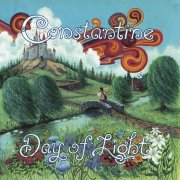 |
Day of Light (2015, 44.40) ***½/T½ |
|
| (Into the Land) That Time Forgot The Trip (parts I & II) Egyptian Days Song of the Seven Willows On Through the Ages Fountains/Reflections Voyage of the Crystal Bird Forest Path |
(Into the Land) That Time Forgot part II Rania Day of Light |
|
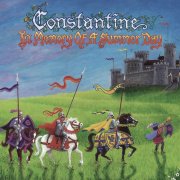 |
In Memory of a Summer Day (2020, 48.57) ****/TTTT |
|
| Upon Your Rise Morning/The Meandering Path Spring My Dear Alice Slaying of the Dragon Far, Far, Far Away Matilda of the Meadow Afternoon/In Memory of a Summer Day |
Along the Castle Wall Upon a Dream Rivers The Kingdom Must Fall |
|
 |
Current availability:
Mellotrons used:
Chicago's Constantine Hastalis released his first album, Day of Light, in 2015, drawing on the folk and psych fields, standouts including opener (Into The Land) That Time Forgot, the brief Song Of The Seven Willows, On Through The Ages' psych-rock and Rania, which builds up to a full-on psych-fest over its six-minute length. Hastalis and Umbra & the Volcan Siege's Jim Licka on Mellotron, with nothing until some beautifully wobbly flutes and strings on On Through The Ages and strings and flutes (under the real one) on Voyage Of The Crystal Bird. A fine first effort, if a touch formative.
It took Hastalis five years to follow up with the quietly beautiful In Memory of a Summer Day, all acoustic whimsy, mediæval tonalities and Donovan moves, amongst other acid-folk progenitors, Mr. Leitch's influence particularly obvious on Far, Far, Far Away. Frankly, there isn't a bad track to be heard here, although top marks might just go to ten-minute closer The Kingdom Must Fall, slowly building up to an epic guitar solo, in true '70s style. Hastalis and Alex Rowney play Mellotron(s), with flutes on all highlighted tracks above, plus strings and choirs on Morning/The Meandering Path (and real flute on the intro) and strings on The Kingdom Must Fall. I actually wouldn't mind betting that Hastalis and Rowney played some of the Mellotron work on both instruments simultaneously; some of it certainly sounds like a 'live' performance. This really is a superb piece of work; a shame Guerssen's physical release has sold out so quickly. Excellent music and full-on Mellotron: what's not to like?
See: Lucille Furs | Red River Dream
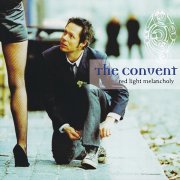 |
Red Light Melancholy (2001, 50.11) **½/T |
|
| Silverbird Gilt Edged Glow (Sleep With the Darkness) Passengers of Time Above My State Love & Grace On My Way Home Films Wash My Words |
Red Light Melancholy Disillusion Road My Honest Life of Lies |
|
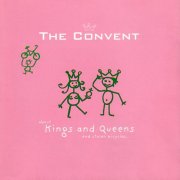 |
About Kings & Queens & Stolen Bicycles... (2002, 40.14) **½/TTT |
|
| Kings and Queens Goodbye Bride Sign of Light Welcome Guest Adam & Eve She Seven Days in Trance Neon Fire |
Scars Love Shines Lovers Lost |
|
Current availability:
Mellotrons used:
Carlo van Putten (who has also worked with Adrian Borland) formed The Convent in the mid '80s, only for them to split and reform, releasing their fourth album, Red Light Melancholy, in 2001. How to describe this? 'Heavier end of indie'? Exceptions include On My Way Home's electronica and the sparse, seven-minute title track, at its best on opener Silverbird, Films and that title track. Stefan Bornhorst (Silicon Scientist/Sonnenbrandt) plays his M400, with distant choirs on Silverbird and a flute line on On My Way Home.
The following year's About Kings & Queens & Stolen Bicycles... manages to be even less interesting (and more lightweight) than its predecessor, Van Putten's droning vocals being a real chore to listen to over the course of a forty minute album. There are no obvious highlights, other than the album's considerable Mellotron use, from Bornhorst again, with strings on Goodbye Bride, choirs and a flute melody on Sign Of Light, background flutes on Welcome Guest, distant strings on Adam & Eve, choirs on She, vibes on Neon Fire and a string line on closer Lovers Lost. For what it's worth, Van Putten later formed Dead Guitars.
 |
Billion Dollar Babies (1973, 41.05/98.58) ****/T½ (TTT) |
||
| Hello Hooray Raped and Freezin' Elected Billion Dollar Babies Unfinished Sweet No More Mr Nice Guy Generation Landslide Sick Things Mary-Ann |
I Love the Dead [expanded ed. adds: Hello Hooray Billion Dollar Babies Elected Eighteen Raped and Freezin' No More Mr Nice Guy My Stars |
Unfinished Sweet Sick Things Dead Babies I Love the Dead Coal Black Model T Son of Billion Dollar Babies (Generation Landslide) Slick Black Limousine] |
|
Current availability:
Mellotrons used:
Alice Cooper, king of shock rock, enemy of society, crown prince of darkness (1973 version) blah blah blah... Alice, née Vince Furnier, was always a nice boy really, ending up as one of 'rock's elder statesmen', whose opinion always seems to be sought on those TV programmes about 'heavy metal' or 'glam rock' or whatever, mainly because he can a) always be relied upon to be intelligent and witty at the drop of a hat and b) still be alive. It was not always thus... In 1973, Alice was in the throes of a serious alcohol problem, the so-called moral majority coming down on him like a ton of bricks wherever he went, seemingly due to their lack of understanding of the (major) theatrical element in what he was doing.
Billion Dollar Babies was his (or their, depending on exactly whom you consider 'Alice' to be) sixth album proper, but only the fourth of any real lasting value. Love it to Death (1970, ****), Killer (1971, ****½) and the overrated School's Out (1972, ***) are all good, particularly Killer, but Billion Dollar Babies took the whole 'Alice' concept to another place, several of its tracks still being performed live to this day, notably Elected, No More Mr Nice Guy and the title track. What's really noticeable, upon replaying the album, is how... Broadway it is. Not as much as the excellent (if campy) Welcome to My Nightmare (****), two years down the line, but Alice's brand of theatricality owed as much to Bernstein as, er, Roger Corman (he said, stretching an analogy beyond breaking point), with many of the arrangements having musical 'spaces' built into them for the onstage theatrics. There's some great material here (other classics include Sick Things and the wonderfully depraved I Love The Dead), but it's got less rock credibility than Killer, actually losing half a star upon re-reviewal. On the Mellotron front, producer Bob Ezrin (a bit of a Mellotron fan on the quiet) got a bit of Mellotron in on a couple of tracks, with strings and a bit of flute on opener Hello Hooray and strings and choir on Unfinished Sweet (ha ha).
The album's 2001 remaster added a second disc, containing a chunk of a live set from the era and a handful of outtakes. The live material's excellent, although it's noticeable that much of the new album was played in semi-medley form, several tracks segueing into each other after a couple of verses. The three studio tracks tacked on the end are a New Musical Express (UK music rag) flexidisc track, Slick Black Limousine, a demo version of the same track, Coal Black Model T and an early version of the album's Generation Landslide, Son Of Billion Dollar Babies, all worth hearing, if slightly inessential. Bob Dolin plays piano and Mellotron on the live tracks on the expanded version, with the string parts from Hello Hooray (though not the flutes) and Unfinished Sweet present and correct, plus string and cello parts on Sick Things and strings on I Love The Dead, both of which work really nicely. I'm not sure the original album's really worth it for the Mellotron fan, but the expanded version just might be.
See: Michael Bruce
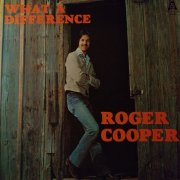 |
What a Difference (1978, 30.07) */T½What a DifferenceSatisfaction Guaranteed You Light Up My Life Seed of Abraham My Desire Cast Your Bread Home Where I Belong Little Flowers Say I Do |
Current availability:
Mellotron used:
At the time of writing, Roger Cooper's still making music in his home state of Kansas; his website makes a virtue of his obscurity, which is quite a trick. Without a discography (there's nothing on his site), I don't know if 1978's What a Difference was his debut; I do, however, wish it had been his last album. In fact, I'd far rather it had never been made in the first place. I point-blank refuse to add the Biblical references to each track, but his tiresome faith in a wholly imaginary deity makes his ultra-bland MOR even harder to bear. Is ANYTHING here other than appalling? No, although the jazzy Cast Your Bread at least injects a (very) little life into the proceedings.
Don Johnson (clearly not that one) plays Mellotron on all highlighted tracks above, all in anodyne 'string section replacement mode', although the strings on Home Where I Belong are real. Thankfully, this is deeply obscure, meaning that your chance of running into a copy while crate-diving are close to zero, probably even in Kansas. Can I thank Mark Medley for sending me this? I can not. A shit sandwich without the sandwich.
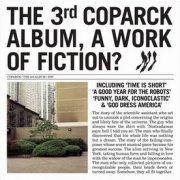 |
The 3rd Coparck Album, a Work of Fiction? (2007, 50.49) **½/T |
|
| The Fifth Season A Good Year for the Robots You Will Fall God Dress America Consider This Goodbye Funny, Dark, Iconoclastic A Work of Fiction Thoughts You Thought You Could Do Without |
Time is Short How to Find What You're Not Looking For You'll Never Find Anything Quite Like it Absorb and Transport |
|
Current availability:
Mellotron used:
I'm not quite sure how to describe Coparck's The 3rd Coparck Album, a Work of Fiction?: Jazz-indie-electronica? A better Coldplay? The Dutch Beck? Their droll sense of humour (in English - don't panic) lifts them above the largely humourless indie mainstream (viz God Dress America and other scattered witticisms), although, sadly, their rather dreary music drags them back down again.
Maurits de Lange plays Mellotron, with strings on A Good Year For The Robots, although all other orchestral instruments seem to be real. Overall, not the most exciting album ever, although I've heard a lot worse.